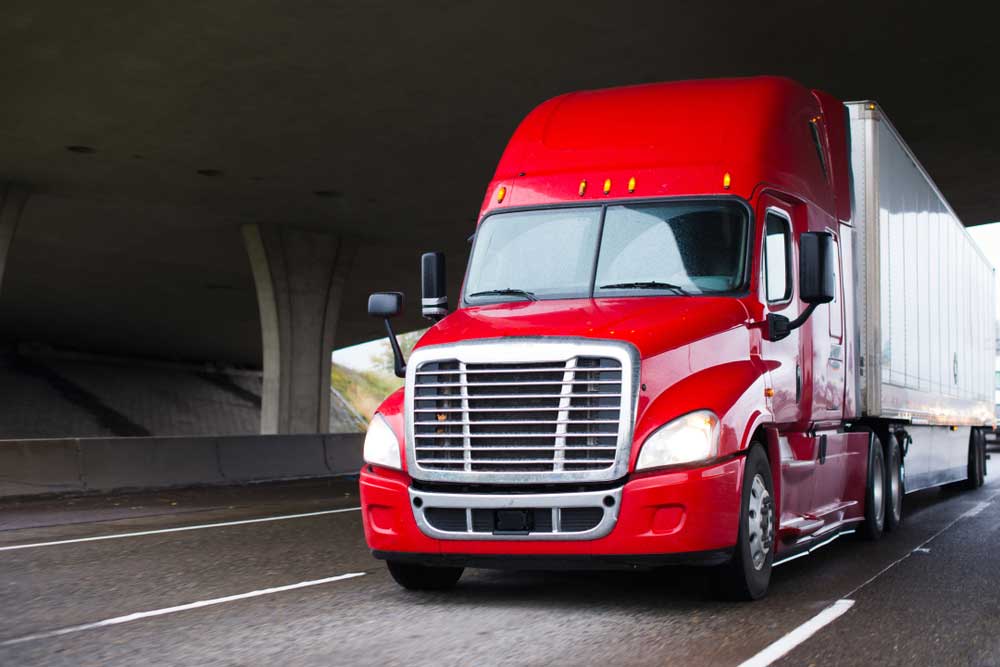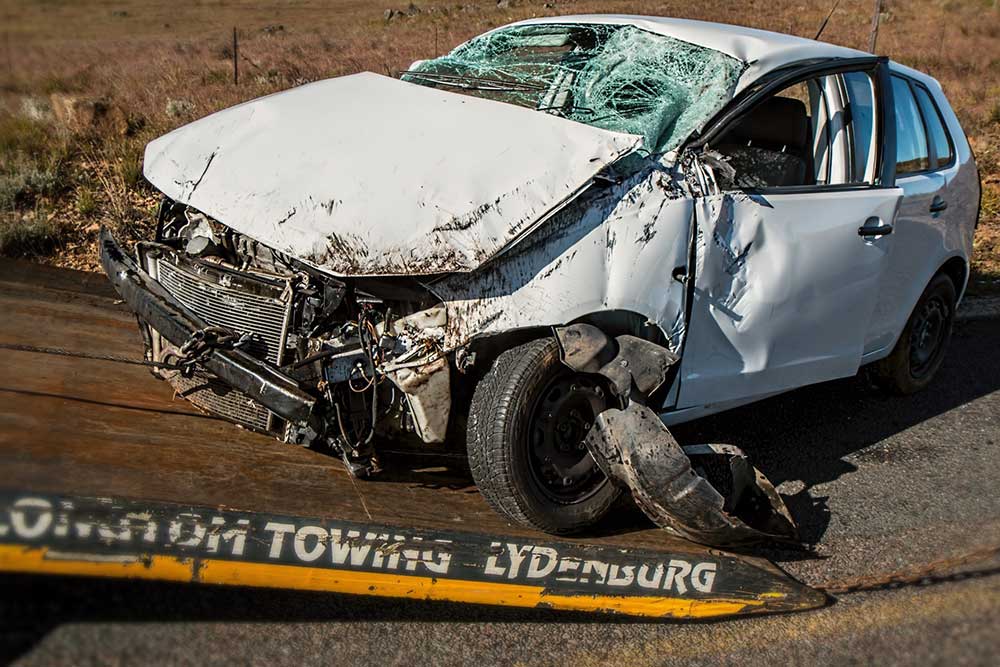
Commercial trucks are a critical part of every country’s economy. They carry out essential deliveries without which store shelves would be empty, and our lives would be much more complicated. However, despite the global function of professional truck drivers, commercial motor vehicles are a palpable threat to other road users.
To limit the potential risks of serious injuries, or what’s even worse — wrongful death and property damage — every state has come up with a set of trucking regulations. Today, we’ll dive into the depths of Massachusetts trucking laws to help you stay safer on the road and know what your legal rights and obligations are.
- What Is the Definition of a Commercial Vehicle in Massachusetts?
- What Are Federal Motor Carrier Safety Administration (FMCSA) Regulations in MA?
- Get a Free Case Evaluation
- What Are Commercial Truck Permits in Massachusetts?
- How Do You Obtain a Commercial Driver’s License (CDL) in MA?
- Major Maintenance and Inspection Requirements
- What Are the State Requirements for USDOT Numbers?
- Contact a Truck Lawyer for a FREE Legal Consultation Today!
- 30-Day, Risk-Free Guarantee
What Is the Definition of a Commercial Vehicle in Massachusetts?
While every state in America is subject to federal laws, state regulations may differ from location to location. In Massachusetts, commercial vehicles are large motor vehicles like trucks, semi-trucks, trailers, and other types with a gross vehicle weight rating or a gross combination weight rating exceeding 10,001 pounds. The same goes for trailers and semi-trailers that weigh over 3,000 pounds, vehicles that can carry more than 15 passengers, and vehicles that have 5 or more wheels.
These types of vehicles are used for business purposes and are designed to transport various kinds of goods, potentially hazardous materials, and people.
What Are Federal Motor Carrier Safety Administration (FMCSA) Regulations in MA?
Federal regulations are the national safety standards that every person has to abide by. FMCSA regulations of trucking operations focus on overall driver safety and decreased accident rates in the country.
Main federal regulations cover the following aspects:
- Hours of service: To rule out driver fatigue and potential consequences of distracted driving, the state has implemented strict working hour limits. To make sure that truck drivers don’t try to push the boundaries, commercial vehicles must be equipped with electronic logging devices.
- Maintenance: Every commercial vehicle type should undergo regular inspections to rule out unexpected malfunctions that will put the truck driver and other road users at risk.
- Qualification: Every vehicle operator should possess a valid commercial driver’s license that proves their qualification, medical fitment, and alcohol and drug sobriety.
- Cargo and weight limitation: Massachusetts trucking laws force trucking companies to comply with state-approved cargo security and weight limits to prevent cargo damage in transit.
Hours of Service Regulations in Massachusetts
Commercial truck drivers in Massachusetts have to stick to a state-regulated maximum amount of their driving duty. According to the new laws, vehicle operators that transport either property or people should comply with the approved work and rest periods to prevent driver fatigue syndrome and remain functional and alert while en route.
- Drivers should not exceed the 14-hour work shift. This includes driving and other related tasks. Whether it is loading, unloading, or driving, after 14 hours of duty, the driver must take a 10-hour rest.
- Property-carrying drivers can spend 11 hours driving, while those who transport passengers are allowed only 10 hours at the wheel.
- A commercial vehicle driver must take 30 minutes off after 8 hours at the wheel.
- The weekly driving limit shouldn’t exceed 60-70 hours within 7-8 days. It takes at least 34 hours off duty to be approved back at the wheel after a week-long shift.
- Truck drivers and passenger carriers are allowed to expand their driving limits if adverse driving conditions are encountered.
If a truck driver violates these conditions and sustains serious injury due to the work strain, they can sue the employer. Contact a professional workers’ compensation lawyer in case you don’t know these regulations and are left dealing with the physical, emotional, and financial aftermath of the incident.

Get a Free Case Evaluation
What Are Commercial Truck Permits in Massachusetts?
According to Massachusetts trucking laws, every commercial motor vehicle of specific weight and size requires a variety of permits to be allowed on the streets. Mostly, these permits coincide with existing federal regulations. They control the load, hazardous material transportation intrastate operation, and other specific commercial needs. A truck driver or their company risks varying legal complications if they don’t have a valid permit.
Weight Limits
The Massachusetts Department of Transportation enlists no precise weight limitations. You should contact the permits department to learn the existing limits. You can do so by contacting them via email at MassDOT-TruckPermit@dot.state.ma.us.
Height Limits
Unless your truck isn’t wider than 8 ft. 6 in. and taller than 13 ft. 6 in., you don’t need a special permit. Should the measurements exceed the maximum heights allowed, you must request a corresponding permit. Keep in mind some routes, especially those that contain tunnels, may have different requirements.
For instance:
- Callahan tunnel: 12 ft. 6 in.
- Sumner tunnel: 12 ft. 6 in.
Length Limits
The length of commercial vehicles traveling across the state is also regulated. Depending on the type of vehicle, the limits will differ. For example:
- For house trailers, the limit is 40 feet
- For truck trailers, is it 65 feet
- For trucks: 40 feet.
Holiday Limits
On country-wide holidays like:
- The New Year’s Day
- Memorial Day
- Thanksgiving Day
- Independence Day
- Christmas
Movement of commercial vehicles on state highways is prohibited. The regulation activates at noon of the day preceding the holiday and deactivates at noon of the day after the national holiday.
How Do You Obtain a Commercial Driver’s License (CDL) in MA?
To get a CDL in Massachusetts, future commercial drivers must first apply for a commercial learner’s permit. This permit allows you to proceed with the application access, written exams, and road tests to obtain a valid CDL.
There’s a list of federal regulations to comply with before you can access the CLP. These requirements include but are not limited to age, driving record, citizenship (permanent lawful presence in the state is required), medical records, class, and endorsements. Let’s dwell on primary requirements in detail.
Age
In the state of Massachusetts, a driver-to-be must be at least 21 years of age for interstate commerce transportation. The legal age to apply for a CDL aimed at intrastate driving is 18 years.
Class
There are three main CDL classes you can apply for: A, B, and C. Each class is different in terms of the type and gross weight of the vehicle you can operate.
- Class A: 18-wheelers, truck combinations, tankers, livestock carriers.
- Class B: city buses, straight trucks, box trucks, dump trucks.
- Class C: double and triple trailers, HazMat vehicles.
Endorsements
Many large vehicles have an assigned endorsement specification that defines specific types of cargo that you can transport. Usually, it takes additional tests to pass to obtain the right to operate such vehicles successfully. The most popular endorsements are:
- H: hazardous materials
- N: liquids and gasses
- P: passenger vehicles with 16 or more people, including the driver
- S: school busses
- T: double or triple trailer operation
- X: It is a combination of H and N endorsements
Major Maintenance and Inspection Requirements
Both federal regulations and state laws of Massachusetts require that every commercial vehicle undergo annual check-ups that prove its safety and proper functioning. Failing to comply with these requirements may lead to serious accidents, costly repairs, and civil fines.
-
Brake system
A trained expert should inspect the fluid level, reliability of emergency brakes, and other elements of the system.
-
Tires
Worn-out tires often serve as a leading cause of dangerous road situations, as you can’t control the truck when a tire blows out from extended exploitation or worse.
-
Steering system
Another critical control aspect of the vehicle is its steering system topped with the suspension. If either of these starts to malfunction, it should be checked and fixed or replaced entirely.
-
Lights and signals
Broken turn signals, brake lights, or headlights can trigger serious incidents. That is why burnt-out bulbs should be replaced and all the damage repaired on time.
-
Load equipment
The loading system must be inspected to make sure that the cargo is safely transported and unloaded without unnecessary damage caused to the vehicle and people operating it.
Adhering to maintenance standards is essential not just for legal compliance but for reducing road risks. Massachusetts car accident statistics highlight how negligence and unsafe practices contribute to many accidents. Prioritizing regular inspections significantly enhances safety and accountability on the roads.
What Are the State Requirements for USDOT Numbers?
In 2018, the governing entities of Massachusetts came up with a special USDOT legal innovation that fully complies with existing federal regulations. According to this law, all the commercial carriers in the state must apply for a special number. This number is unique for every vehicle and is used to track and detect various records of potential safety breaches, failed inspections, and other violations.
You can figure out if you need the DOT number and apply for it online through the FMCSA site. Drivers who fail to do so will be subject to preventive measures, such as fines and other potential limitations. It is free of charge to apply for the DOT number.
Contact a Truck Lawyer for a FREE Legal Consultation Today!
Federal regulations are like a maze if you have no legal background in the field. Whether you are faced with local trucking law issues, permit problems, or accident aftermath, contact our truck accident lawyer for a free consultation to know where you stand and which course to take! Don’t battle legal complexities alone; let an experienced legal representative fight for your rights and resolve any dispute quickly and efficiently!
Commercial vehicle laws are not your cup of tea? We have more helpful information about where this comes from! Want to learn more about motorcycle laws or want to know your cyclist’s rights? Check out our recent blog updates!






